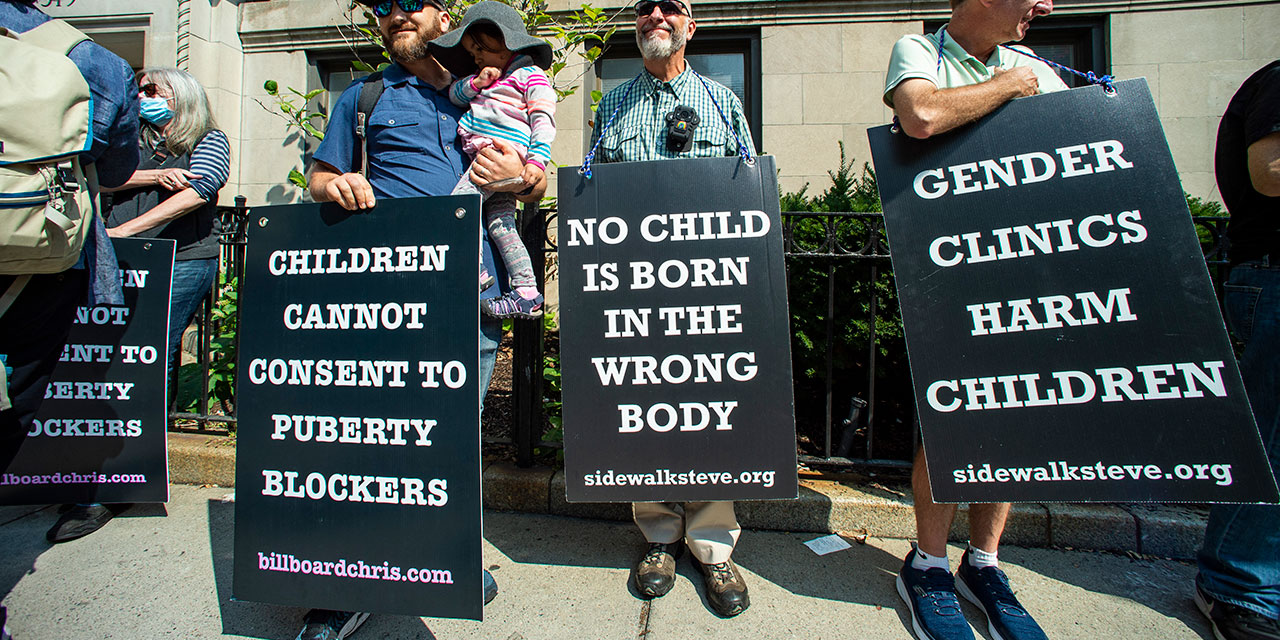The June debate between Donald Trump and Joe Biden proved a turning point in the 2024 presidential race. Last night’s clash between Trump and Kamala Harris reinforced the status quo.
In keeping with how he has stamped this political era, Trump was the debate’s defining personality. Launching one swing after another, he came across as combative and aggrieved.
Harris continued her Rorschach candidacy. The theme of her debate performance, and of her campaign as a whole, came in a remark near the night’s conclusion: “I am not Joe Biden, and I am certainly not Donald Trump.” She insists on the need to “turn the page,” but she keeps the leaves of the book relatively blank.
Since July, when she entered the race, Harris’s campaign strategy has been to position herself as the “change” candidate and to make the election a referendum on Trump. At the debate, she thus adopted a refract-and-attack approach, deflecting questions about her policy positions and turning the focus on her rival. When asked why the Biden administration waited until the approach of another presidential election to act on the border crisis, Harris responded that she had supported a border bill rejected by congressional Republicans, and then pivoted to mocking the size of Trump’s rallies. In response to a moderator’s question about her health-care plan, the vice president briefly stated that she wanted to “maintain and grow the Affordable Care Act,” before highlighting Trump’s own failed attempt to repeal the ACA. Amid all this talk, she never described her own plan in detail or explained why she had changed from supporting the abolition of private health insurance in 2019 to . . . whatever her position is today.
The former president huffily went along with Harris’s attempt to make this debate another episode in the Trump Show. He took her bait—whether about rally sizes, John McCain’s role in torpedoing ACA repeal, or financial assistance he received from his father. At times, Trump’s face hardened in irritation, while Harris responded differently to the former president’s attacks than did Joe Biden or Hillary Clinton. Rather than scowling or launching into a bitter tirade, Harris laughed or perched her chin on her hand in a pose of performative disdain, like a second-grade teacher bemused by a student.
The moderators, too, seemed intent on the Trump Show gambit—albeit with a marked skew against its star. They lobbed aggressive follow-up questions at the former president and let him exceed his allotted speaking time. They challenged several of his statements in real time, while leaving Harris’s contestable claims unquestioned. These interventions muddied the waters. For instance, moderator Linsey Davis “fact-checked” Trump’s claim about late-term abortions, saying that it was not legal in any state to “kill a baby after it’s born.” The truth is not so neat as she suggests: the fate of babies who survive abortions is a hotly contested subject. In 2023, 210 elected Democrats voted against a bill that would have required doctors to provide standard medical care to such children. In response to a question by Trump, Harris refused to say whether she supported legal abortion in the seventh, eighth, or ninth months of pregnancy—and the moderators didn’t press her on that, either. They likewise failed to ask about Biden’s withdrawal from the presidential race, Harris’s assessment of her boss’s mental capacity, or about how the candidates would approach crucial issues such as China policy.
Last night’s debate highlighted the potential downsides for the Trump campaign of embracing a politics of controversy. The long discussion about January 6, 2021, and Trump’s challenge to the 2020 election kept the former president on the defensive and spotlighted a topic poisonous to swing voters in battleground states. Trump’s recycling of online allegations that illegal immigrants were eating pets in Springfield, Ohio, birthed a viral moment that may distract from the issue of our overwhelmed border, where the realities are brutal enough. Very Online controversialists have long latched onto Trump and used him to build their own platforms. If Trump spends too much time peddling this kind of material, he could struggle to reach undecided swing voters.
According to CNN instant poll, debate watchers thought that Harris won the debate. Such a victory might have limited pay-off in today’s polarized climate, however. Biden’s first debate performance was so disastrous that it forced him out of the race, but Trump’s polling edge grew by only a few points. Of course, small gains in a close election can make the difference between defeat and victory.
Like fortune, “vibes” can be fickle—and, sometimes, double-edged. Harris succeeded in making the debate a referendum on Trump, but polls indicate that many voters still don’t know enough about her. Her calculated vagueness could hurt her ability to seize the “change” mantle. For Trump, the debate’s tag-team visuals—Harris and the moderators versus the former president—plays into his principal campaign theme: Trump alone against a constellation of forces. The sheer magnitude of the coordinated opposition to his candidacy has helped Trump cast himself as a tribune of the alienated, so the debate could reinforce his appeal to restive voters. For some of them, Harris’s schoolteacher pose could come across as condescending rather than confident. Voters may want to turn the page on the politics of vicious and vulgar conflict, but they also want someone to address the real problems they face.
Photo by Demetrius Freeman/The Washington Post via Getty Images




